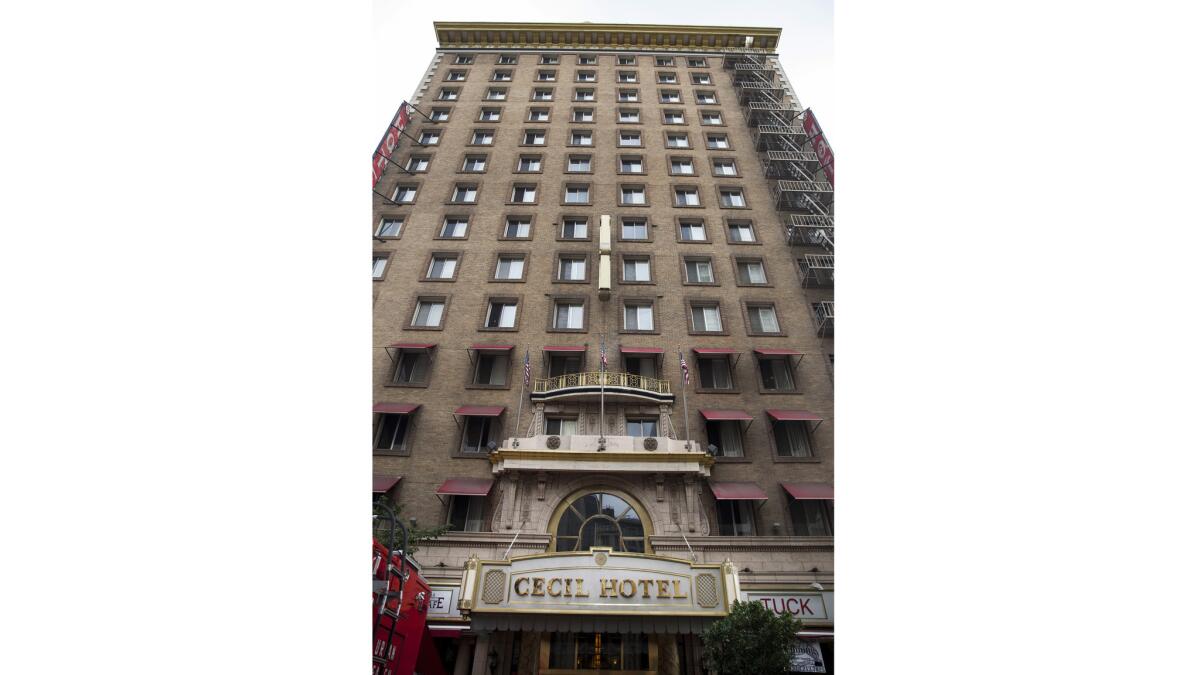Death outside skid row hotel is under investigation as possible suicide

A young man may have plunged to this death from the Cecil Hotel downtown, seen in 2013, on Friday, authorities said.
Authorities suspect a 28-year-old man who died Friday on Main Street in downtown Los Angeles may have plunged to his death from a skid row hotel, a Los Angeles County coronerâs spokesman said Saturday.
The man was pronounced dead Friday at 5:05 p.m. outside the Cecil Hotel, said Lt. David Smith, coronerâs supervising investigator. The cause of death has not been determined, and the manâs name will not be released until his family can be notified, Smith said.
The hotel, an 85-year-old skid row institution, operates in part as a low-budget tourist hotel and hostel called Stay on Main, but during its long and sometimes dark history was known as the Cecil.
A man who identified himself as the assistant manager said the man who died was not a guest and could have been an intruder. But he declined to provide other details.
Two years ago, Canadian tourist Elisa Lamâs body was found inside a water cistern on the Cecilâs roof. Her death was ruled an accidental drowning by the coroner, though surveillance video from the hotelâs elevator showed Lam acting oddly, sparking conspiracy theories about the circumstances.
Sony Pictures and Matt Tolmach Productions bought a screenplay about the mysterious death.
In the 1940s, the hotel was one of the first public meeting places for Alcoholics Anonymous. It was later the sometime home of serial killers Jack Unterweger and Richard âNight Stalkerâ Ramirez, and is included on a bus tour of eerie Los Angeles crimes.
Some long-term residents told the Times five years ago that they still call the Cecil âThe Suicideâ because of the number of people who have jumped to their deaths from the building through the years.
Last year, the county tried to convert 384 of the Cecilâs rooms to apartments for homeless people, but the proposal died in a wave of opposition from business leaders and politicians, who said there was already too much homeless housing in the rapidly gentrifying downtown. Most of the rooms sit emp1ty because of a city ordinance requiring developers to replace any rooms converted from residential to tourist use.
Twitter: @geholland
More to Read
Sign up for Essential California
The most important California stories and recommendations in your inbox every morning.
You may occasionally receive promotional content from the Los Angeles Times.










